New Delhi – The latest Bharat Bandh News brings word of an unprecedented nationwide general strike scheduled for Wednesday, with over 25 crore workers from diverse sectors expected to participate. This massive demonstration, organized by a joint forum of 10 central trade unions, represents one of the largest coordinated labor actions in recent Indian history. The strike has been branded as a comprehensive protest against what unions describe as anti-worker, anti-farmer, and anti-national pro-corporate policies implemented by the central government.
Extensive Sector Participation Confirmed
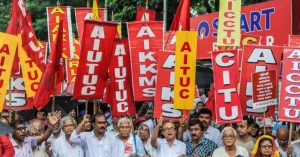

According to emerging Bharat Bandh News, workers from a wide array of critical sectors are preparing to join the strike action. Banking professionals, insurance employees, postal service workers, coal miners, factory workers, and state transport personnel are all expected to participate in this coordinated effort. The comprehensive nature of the participation indicates months of intensive preparation across both formal and informal sectors of the economy.
Amarjeet Kaur of the All India Trade Union Congress (AITUC) confirmed the massive scale of participation, stating that more than 25 crore workers are expected to take part in the strike. This Bharat Bandh News also reveals that farmers and rural workers will join the protest across the country, expanding the scope beyond traditional industrial sectors to include agricultural communities.
Anticipated Impact on Public Services
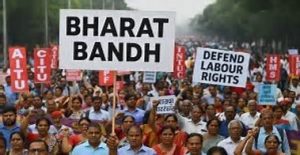

The Bharat Bandh News suggests that Wednesday’s strike will severely impact essential public services and key industries. Harbhajan Singh Sidhu of the Hind Mazdoor Sabha specifically identified banking, postal services, coal mining, factories, and state transport services as sectors that will be significantly affected. The widespread nature of the participation means that millions of citizens may face disruptions in their daily routines and access to essential services.
Also Read: Delhi CM Writes to Yogi Against Sand Mining: Demands Urgent Action
Banking operations are expected to be particularly impacted, with potential delays in transactions, loan processing, and other financial services. Similarly, postal services may experience significant delays in mail delivery and package processing. The mining sector’s participation could affect coal supply chains, potentially impacting power generation and industrial operations across the country.
Charter of Demands Driving the Protest
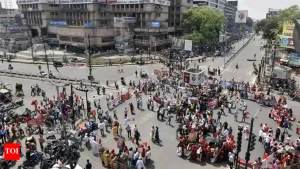
The current Bharat Bandh News highlights that the strike stems from a comprehensive charter of 17 demands that trade unions submitted to Labour Minister Mansukh Mandaviya last year. According to union leaders, the government has consistently ignored these demands and has failed to convene the annual labour conference for the past decade. This neglect, they argue, reflects the government’s systematic apathy toward the needs and rights of the country’s workforce.
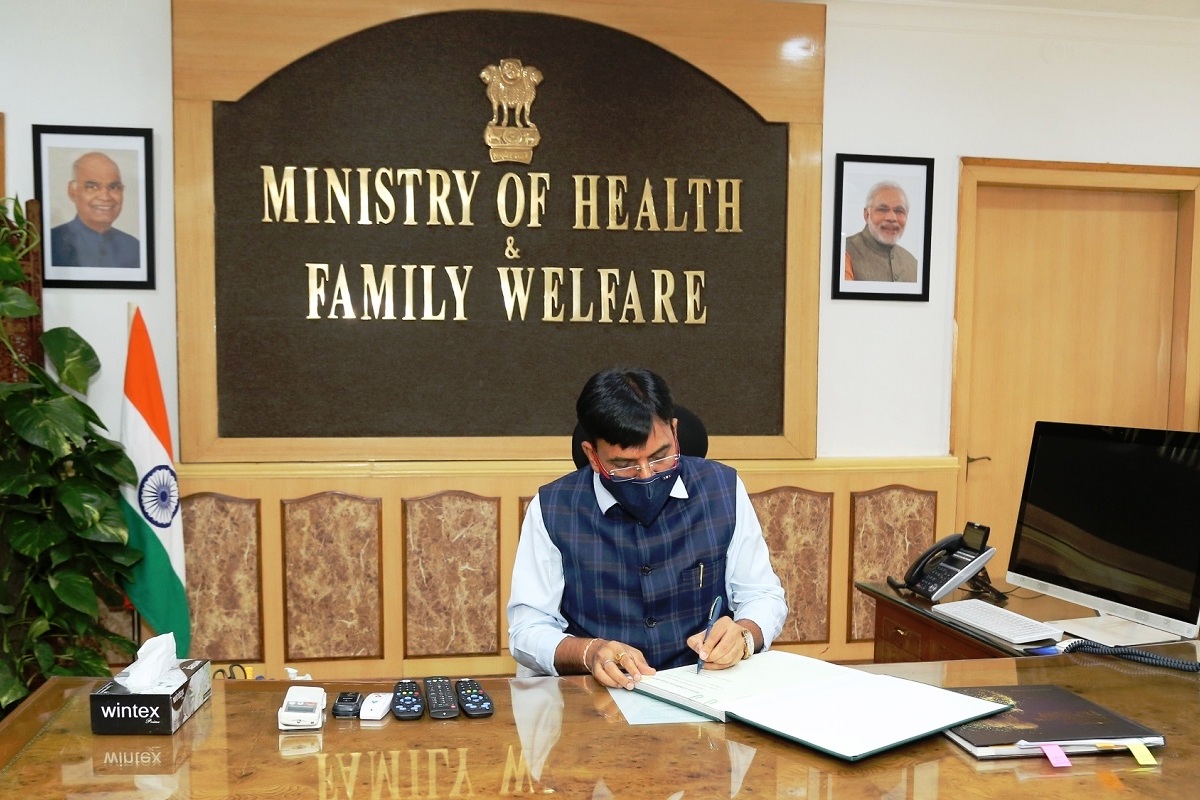

The unions’ frustration has been building over what they perceive as a pattern of governmental indifference to worker concerns. The Bharat Bandh News indicates that this strike represents a culmination of years of unaddressed grievances and mounting tensions between organized labor and government policy makers.
Opposition to New Labour Codes
Central to the Bharat Bandh News is the unions’ strong opposition to the government’s labour reforms, particularly the introduction of four new labour codes. Trade union leaders argue that these codes are deliberately designed to erode fundamental workers’ rights and protections that have been established over decades of struggle. The unions contend that these reforms represent a systematic attack on organized labor.
According to the joint forum’s statement, the four labour codes are intended to dismantle collective bargaining mechanisms, weaken union activities, increase working hours without proportional compensation, and shield employers from accountability under existing labour laws. This Bharat Bandh News reveals that unions view these changes as a fundamental threat to the welfare state concept and workers’ constitutional rights.
Allegations Against Government Policies
The Bharat Bandh News brings to light serious allegations made by trade unions against the current government’s economic policies. Union leaders assert that the government has abandoned its welfare state responsibilities and is now working primarily in the interests of foreign and Indian corporate entities. They argue that this shift is evident from the policies being pursued with increasing vigor.
Trade unions have been particularly vocal in their opposition to what they describe as systematic privatization of public sector enterprises and public services. The Bharat Bandh News indicates that unions are also fighting against policies promoting outsourcing, contractorization, and casualization of the workforce, which they believe undermine job security and worker rights.
Agricultural Sector Support
The scope of Wednesday’s action extends beyond industrial workers, with significant support from agricultural communities. The Bharat Bandh News confirms that the Samyukta Kisan Morcha and joint front of agricultural workers unions have extended their support to the strike action. These organizations have decided to organize massive mobilizations in rural India, demonstrating the broad-based nature of the protest.
This agricultural participation transforms the strike from a purely industrial action into a comprehensive socio-economic protest that spans urban and rural areas. The Bharat Bandh News suggests that this unified approach between industrial and agricultural workers represents a significant escalation in organized resistance to government policies.
Historical Context of Similar Actions
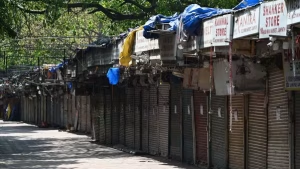
The current Bharat Bandh News should be understood within the context of previous nationwide strikes organized by trade unions. Similar coordinated actions were observed on November 26, 2020, March 28-29, 2022, and February 16 last year. Each of these strikes demonstrated the unions’ capacity to organize large-scale coordinated actions across multiple sectors and regions.
The pattern of recurring strikes indicates that the issues driving worker dissatisfaction have remained unresolved over time. The Bharat Bandh News suggests that Wednesday’s action represents an escalation of these ongoing tensions rather than an isolated incident.
Conclusion and Implications
The Bharat Bandh News regarding Wednesday’s massive strike highlights the deep-seated tensions between organized labor and government policy in contemporary India. With over 25 crore workers expected to participate, this action represents one of the largest coordinated labor protests in recent history. The comprehensive nature of the participation, spanning industrial, service, and agricultural sectors, demonstrates the breadth of dissatisfaction with current government policies.
As the country prepares for potential widespread disruptions, the strike serves as a powerful reminder of organized labor’s capacity to challenge government policies through coordinated action. The success or failure of this Bharat Bandh News event may significantly influence future labor relations and policy discussions in India.

